Global Health, Business Leaders Pledge Major Commitments to End Tuberculosis
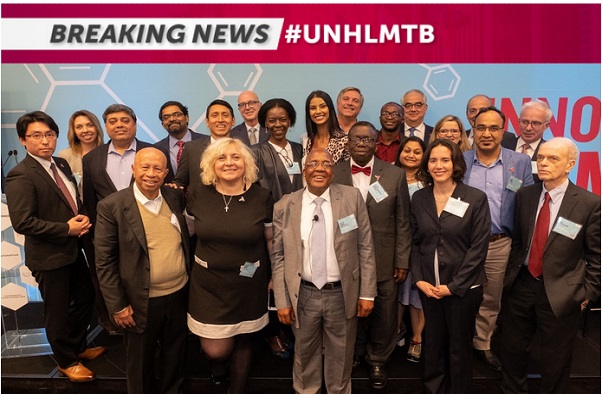
25 September 2018 ¦ New York City – Ahead of the United Nations High-Level Meeting (UN HLM) on Tuberculosis (TB), global health and business leaders convened at the TB Innovation Summit and pledged major commitments to end the world’s deadliest infectious disease.
TB is the world’s deadliest infectious disease, killing more people than HIV and malaria combined. Every year, 10 million people develop active TB; 1.6 million people lose their lives – 3 every minute; and over 4 million cases of TB go undetected.
The Summit, co-hosted by the Stop TB Partnership, Johnson & Johnson, World Economic Forum, UN Foundation, and the Global Fund to Fight AIDS, Tuberculosis and Malaria, served to disrupt business as usual, and catalyse a new journey around the shared goal of driving innovation – both in the lab and at the country level – to create a brighter, hopeful future for the people affected by TB around the world.
The Summit commenced with a strong emphasis on the human aspect of TB and by presenting the stories of TB survivors and advocates. Ms Gerry Elsdon, national TB ambassador for South Africa, TV presenter, and businesswoman and Mr Abdulai Abubakarr Sasay, National Executive Director of the Civil Society Movement Against Tuberculosis Sierra Leone (CISMAT-SL) – both of whom called for a powerful movement for TB similar to the one that helped move the needle on HIV.
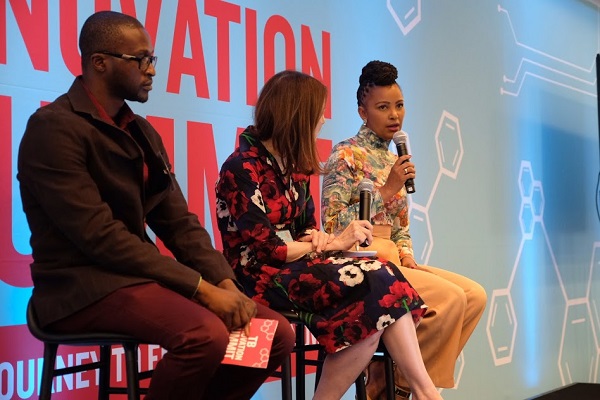
From left to right: Mr Abdulai Abubakarr Sasay, National Executive Director of the Civil Society Movement Against Tuberculosis Sierra Leone (CISMAT-SL); Ms Janet Tobias, Founder and Chief Executive Officer, Ikana Health Action Lab (moderator); Ms Gerry Elsdon, national TB ambassador for South Africa, TV presenter, and businesswoman.
Dr Tedros Adhanom Ghebreyesus, Director-General of the World Health Organisation, in his opening statement, remarked: “To end TB, business as usual will not work. If we keep doing what we have done, we will get the same result. That is the definition of insanity.”
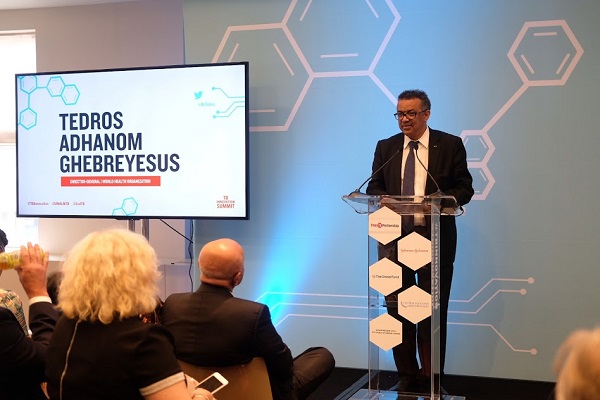
Dr Tedros Adhanom Ghebreyesus, Director-General of the World Health Organisation, addresses the TB Innovation Summit.
Other key participants included: Dr Aaron Motsoaledi, Minister of Health, South Africa and Chair of the Stop TB Partnership Board; Dr Isaac Folorunso Adewole, Minister of Health, Nigeria; Ms Irene Koek, Senior Deputy Assistant Administrator, USAID; Dr Anthony Fauci, Director, National Institute for Allergy and Infectious Diseases (NIAID); Dr Paul Stoffels, Vice-Chair of the Executive Committee and Chief Scientific Officer, Johnson & Johnson; Dr David Persing, Chief Medical & Technology Officer, Cepheid; Mr Rogerio Ribeiro, Senior Vice-President, Head of Global Health, GlaxoSmithKline Plc; Mr Peter Sands, Executive Director, Global Fund to Fight AIDS, Tuberculosis, and Malaria; Dr Lucica Ditiu, Executive Director, Stop TB Partnership; and Mr Steve Davis, Chief Executive Officer, PATH.
Speakers focused on what will be needed to deliver the innovations we have today and develop new solutions that will be needed tomorrow to improve outcomes – including accurate and rapid diagnostics that can be used at the point of care; shorter, safer and more effective TB drugs and multi-drug regimens; and a more effective vaccine.
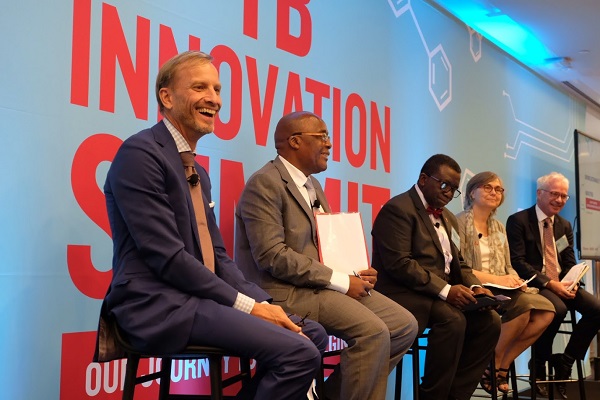
From left to right: Dr Mark Dybul, Faculty Co-Director of the Center for Global Health and Quality and Professor at Georgetown University Medical Center; Dr Aaron Motsoaledi, Minister of Health, South Africa; Dr Isaac Folorunso Adewole, Minister of Health, Nigeria; Ms Irene Koek, Senior Deputy Assistant Administrator, USAID; Mr Peter Sands, Executive Director, Global Fund to Fight AIDS, Tuberculosis, and Malaria.
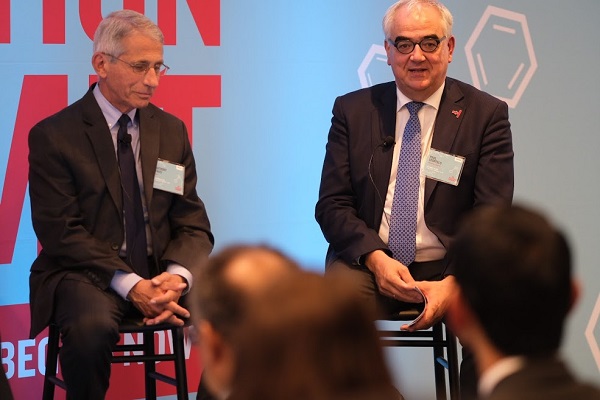
From left to right: Dr Anthony Fauci, Director, NIAID and Dr Paul Stoffels, Vice Chair of the Executive Committee and Chief Scientific Officer, Johnson & Johnson.
The Summit showed strong cross-sectoral support, with eight, major commitments announced, from the following companies: Becton, Dickinson, and Co., Cepheid, India Health Fund, Johnson & Johnson, Mitsubishi UFJ Research & Consulting Co., PATH, Stop TB Partnership, and SureAdhere Mobile Technology.
Tamaryn Green, Miss South Africa 2018 and a TB survivor, concluded the Summit by launching the TB Innovation Charter, which calls for the critical investment in innovation needed to achieve the UN Sustainable Development Goal (SDG) of ending TB by 2030. She remarked: “I call out for action against TB. I call out for my fellow TB survivors and all survivors elsewhere. You all have the knowledge and with that comes a responsibility to TB innovation.” Organizations engaged in the fight against TB will be invited to sign the charter, which will be hosted on the Stop TB Partnership’s website, in the comming weeks.
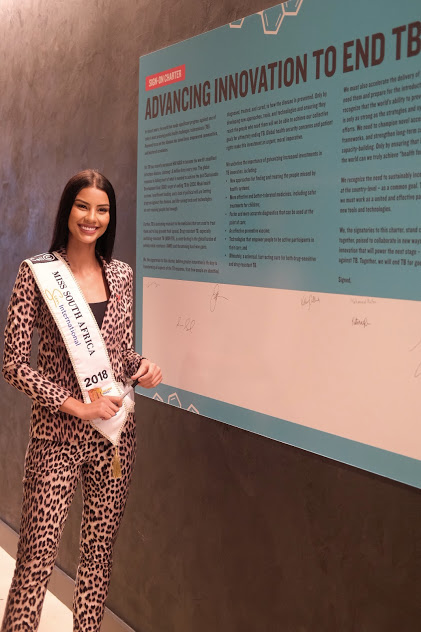
Tamaryn Green, Miss South Africa 2018 and a TB survivor, concluded the TB Innovation Summit.
The UN HLM on TB will take place on 26 September in New York City. It will serve as an opportunity for Heads of State, government and all TB stakeholders to commit much-needed attention, resources and accountability to end TB.
COURTESY: Stop TB Partnership
Facilitated By Akin Jimoh, New York


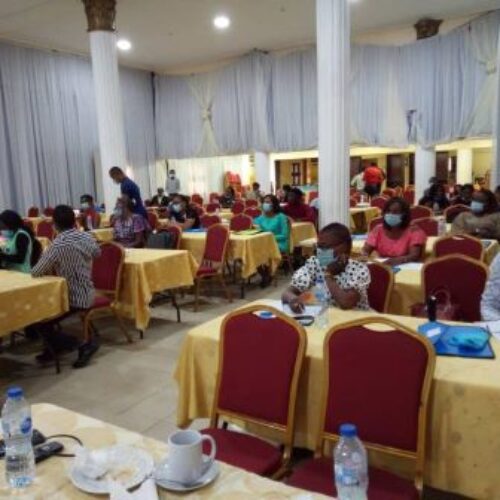



0 Comments
No Comments Yet!
You can be first to comment this post!